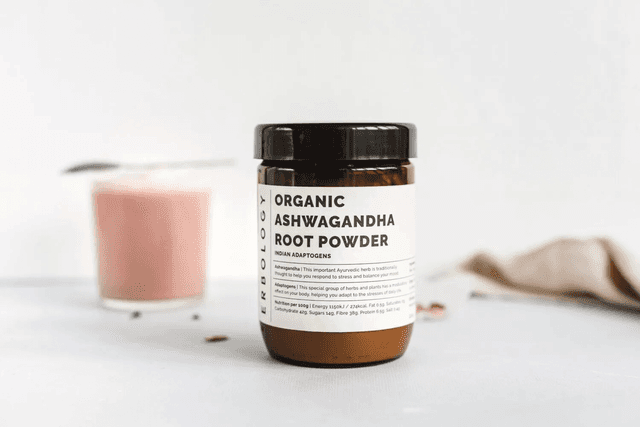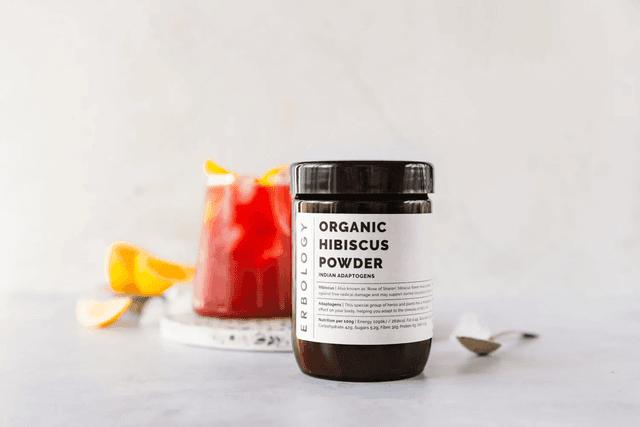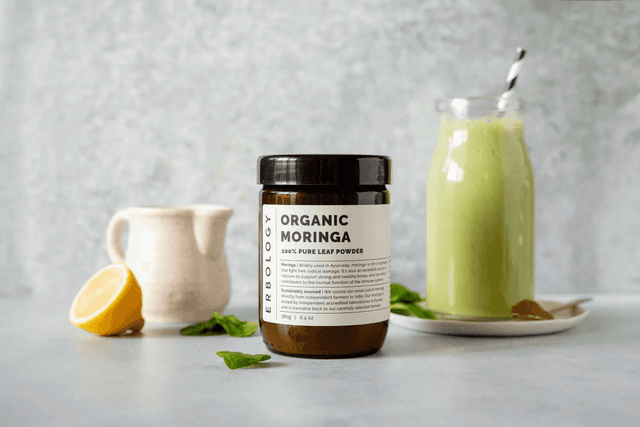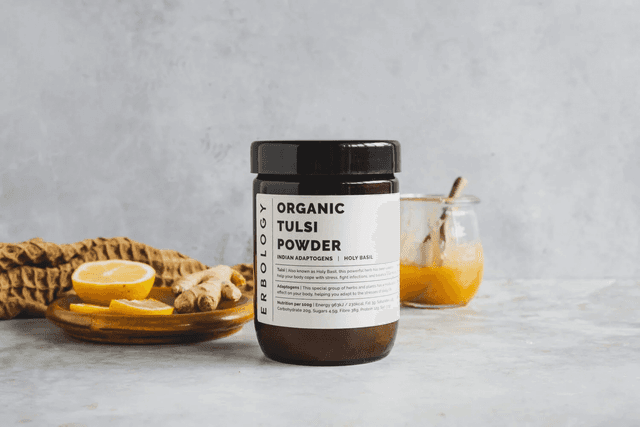09 Jun 2023
What is spirulina?
What is spirulina?
Spirulina is a type of blue-green algae, which grows in nutrient-rich, alkaline freshwater environments. That includes tropical and subtropical rivers, lakes, and ponds. It has an earthy, salty taste, a bit like seaweed or spinach, and is an extremely impressive source of nutrition.
To get technical, spirulina is an edible biomass of cyanobacteria – thought to be among the oldest life forms on earth.(1) It gets its vibrant colour from a pigment called phycocyanin, which also offers a wealth of potential health benefits. More on that later!
Although spirulina has made headlines in recent years as a trendy health food, people have been eating it for centuries. The Aztecs harvested the algae from Lake Texcoco, and their messengers used it to boost their endurance on long runs.(2) Meanwhile, the Kanembu people living beside Lake Chad in Africa use it to make traditional sundried cakes called dihé.
What’s exciting is that modern research is finding evidence to back up this ancient wisdom on the benefits of spirulina. In fact, thanks to its rich nutritional profile and convenient cultivation techniques, space agencies are incorporating spirulina into astronauts’ diets. NASA and the European Space Agency are investigating its use for both long-term space flights and missions to Mars.(3) The hope is that spirulina could both provide astronauts with the nutrients they require and protect them against some of the negative impacts of spaceflight on the human body.
So, what is spirulina? Everything from an ancient dietary staple to a futuristic space food! Consuming it can also be a fantastic way to boost your wellbeing here on Earth. Let’s take a closer look at the potential health benefits of spirulina, and how to include it in your diet.
What is spirulina good for?
Now that we've covered the question of what is spirulina, it’s time to talk about why it’s good for you. What is spirulina used for, other than keeping astronauts healthy? As it turns out, quite a lot!
To begin with, spirulina is rich in numerous key vitamins and minerals. These include potassium, iron, vitamin C, copper, magnesium, manganese, calcium, and several B vitamins, which all have important health benefits. For instance, copper helps the body to produce energy, and iron is vital for maintaining healthy blood. Meanwhile, thiamine (vitamin B1) supports the functioning of your nervous system.
Spirulina is also high in beta-carotene, an antioxidant that our bodies convert to vitamin A. This plays a key role in eye health, suggesting spirulina might be good for protecting our vision.(4) In addition, spirulina is a complete protein. That means it contains all nine essential amino acids, making it particularly useful for those on a plant-based diet.
Interestingly, spirulina may additionally be able to alleviate the symptoms of allergic rhinitis. This is when the inside of your nose becomes irritated and inflamed due to an allergic reaction (e.g. hay fever). Studies suggest spirulina could be more effective at improving symptoms such as sneezing, itching, and congestion than certain pharmaceutical antihistamines.(5)
Spirulina might even be useful for treating anaemia in older adults. Research indicates that the algae can enhance immune function and increase haemoglobin levels in red blood cells, easing symptoms of the condition.(6)
Moreover, some studies have found that spirulina might have anti-cancer properties. However, further investigation is required to clarify its effectiveness in this regard.(7)
What is spirulina good for: the power of phycocyanin
As mentioned above, phycocyanin is the pigment which gives spirulina its vivid colour. Yet that’s not all this compound is notable for! It’s also a potent antioxidant with several potential benefits for our wellbeing.
For example, as an antioxidant, phycocyanin can inhibit inflammation and protect our cells from oxidative damage caused by free radicals.(8) This is vital because evidence links both oxidative stress and chronic inflammation to a multitude of harmful health conditions. These include arthritis, Alzheimer’s disease, and type 2 diabetes. Phycocyanin may even have neuroprotective effects, although further research is needed to confirm this benefit.
Speaking of diabetes, evidence suggests that as well as reducing inflammation, spirulina might help to lower blood sugar levels.(9)
Interestingly, research also indicates that spirulina could support weight loss. Studies have found that including it in your diet might assist in reducing body fat, waist circumference, and BMI.(10) This may be partly because phycocyanin helps to decrease the amount of fat absorbed by the small intestine.
As mentioned above, the Aztecs used to eat spirulina as a way to boost endurance. Spirulina’s antioxidant properties, along with its capacity to increase haemoglobin levels, may explain why it’s able to enhance exercise performance.(11) Studies have found that supplementing with spirulina can help to improve muscle strength, oxygen uptake, and stamina. So it could be a superb choice for those who like to hit the gym or play sports!
What is spirulina good for: the benefits to cardiovascular health
When discussing the question of what is spirulina good for, cardiovascular health is one of the most notable answers. There are several ways in which the colourful algae could improve the health of your heart.
First, it can have a positive influence on your cholesterol levels. Research shows that spirulina works to lower ‘bad’ LDL cholesterol and triglycerides, while simultaneously increasing ‘good’ HDL cholesterol.(12) This helps to support cardiovascular health and reduce the risk of developing heart disease.
On top of this, the antioxidants in spirulina contribute by reducing the oxidation of LDL cholesterol, further protecting heart health.(13)
Another way in which spirulina can lower your risk of heart disease is through its effect on blood pressure. Studies show the algae is able to significantly reduce both systolic and diastolic blood pressure.(14) This is particularly true for people who have high blood pressure. Researchers believe it does so by increasing the production of nitric oxide, which helps blood vessels to relax and dilate. This in turn improves blood flow throughout the body.
The fact that spirulina has anti-inflammatory properties compounds all these benefits. That’s because chronic inflammation can lead to serious cardiovascular problems, including atherosclerosis, heart attacks, and strokes.
What is spirulina like in terms of side effects?
Experts generally consider spirulina to be safe, with a low risk of experiencing side effects from taking it. Having said that, the algae may not be suitable for everyone to include in their diet. As an example, although it’s rare, some people are allergic to spirulina. Of course, if you experience any negative symptoms after consuming it, it’s best to seek medical attention straight away.
Those with existing health conditions or who are on any medication should speak to their doctor before taking spirulina. This is to ensure you avoid any unwanted interactions or side effects. For instance, people with autoimmune diseases or a condition called phenylketonuria are advised not to take spirulina. Likewise, women who are pregnant or breastfeeding should seek medical advice before adding the algae to their diet.
One of the biggest concerns with spirulina relates to the quality of the specific product you buy. When spirulina is cultivated in suboptimal conditions, there is a risk of it becoming contaminated with chemicals, toxins from bacteria, or heavy metals.(15) These can cause damaging side effects if ingested. As such, it’s crucial to choose a spirulina powder from a reputable company that you trust.



